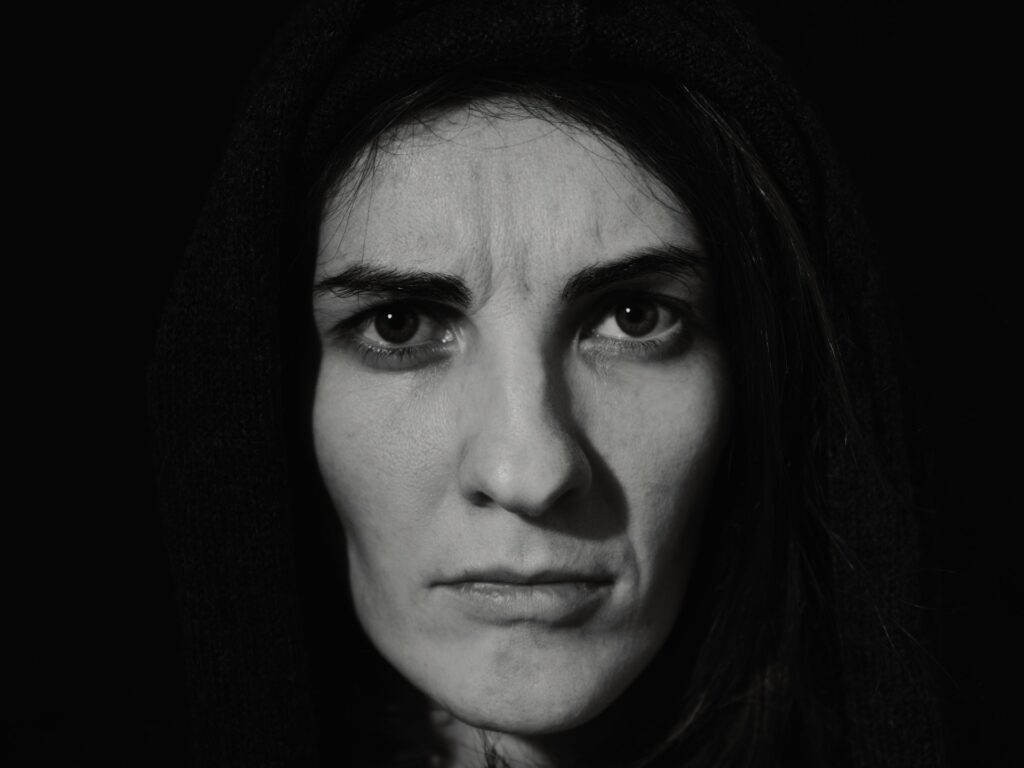Growing up under controlling parents leaves lasting effects that extend far into adulthood. Developmental psychology research shows that children raised in controlling homes often struggle with autonomy, identity, and confidence. These effects are not limited to childhood but can shape how a person works, socializes, and forms relationships later in life. Recognizing the signs of controlling parenting helps people understand their struggles and begin healing. The following nine patterns are common indicators of a controlling upbringing, each with a unique impact on adult behavior.
1. You Struggle to Make Independent Decisions

Adults who grew up with controlling parents often doubt themselves when making choices. As children, their opinions were dismissed or overridden, which taught them to rely on authority figures rather than their own instincts. This leads to hesitation in adulthood, where simple decisions like what to eat or what clothes to buy can feel overwhelming. Larger decisions, such as career paths or relationship choices, become even more daunting because they fear judgment or failure. This indecisiveness is rooted in years of being conditioned to believe their own preferences were invalid. Over time, the lack of confidence can delay progress and create reliance on others for reassurance.
2. You Fear Conflict and Avoid Expressing Opinions
A common effect of controlling parenting is a deep fear of conflict. Children who spoke up often faced anger, punishment, or manipulation, which taught them to remain silent. In adulthood, this silence becomes a default coping mechanism. They may avoid disagreements at work, suppress feelings in romantic relationships, or stay quiet in social situations to keep peace. The cost of this avoidance is high, as it limits their ability to form authentic connections and prevents them from advocating for their own needs. Over time, unspoken frustration can lead to resentment, stress, and burnout, reinforcing the cycle of silence.
3. You Feel Guilty When Setting Boundaries
Controlling parents frequently ignored or violated boundaries, which taught their children that personal space or privacy was not respected. Adults who were raised this way often feel guilty for saying no, even in situations where it is necessary for their well-being. For example, they may feel selfish for declining extra work hours, even when exhausted, or guilty for asking for privacy in relationships. This guilt is not natural but learned, as their childhood experiences conditioned them to prioritize others over themselves. Without boundaries, they risk burnout and strained relationships, yet the fear of being seen as unkind makes it hard to change.
4. You Constantly Seek Approval From Others
Approval-seeking is a lasting effect of conditional love. Controlling parents often rewarded obedience with affection and punished independence with criticism. As adults, these individuals may chase external validation to feel worthy, whether through achievements, overworking, or people-pleasing. They may fear rejection if they fail to meet expectations, which traps them in a cycle of trying to prove themselves. This pattern can cause exhaustion and dissatisfaction, as no amount of approval truly fills the gap left by unmet childhood needs. Learning to separate self-worth from outside opinions is challenging but essential for breaking free from this cycle.
5. You Have Trouble Trusting Your Own Emotions
Children of controlling parents are often told their feelings are wrong or exaggerated. Statements like “stop crying” or “you are too sensitive” teach them to mistrust their emotions. In adulthood, they may feel disconnected from themselves, unsure if their reactions are valid. This emotional confusion makes it harder to trust instincts, leading to hesitation in relationships and decision-making. Some may even minimize their own struggles, believing they should not feel the way they do. Over time, this creates difficulty with self-awareness and emotional regulation, both of which are crucial for healthy mental health.
6. You Experience Anxiety Over Small Mistakes

Perfectionism is a common trait in adults raised by controlling parents. In childhood, mistakes often led to punishment, criticism, or shame. As a result, small errors in adulthood, such as sending the wrong email or forgetting a deadline, can trigger outsized anxiety. They may replay mistakes repeatedly, fearing rejection or disapproval. This anxiety drains energy and reduces resilience, since they focus more on avoiding failure than on learning from experience. Over time, it creates chronic stress and limits their willingness to take risks, which stunts both personal and professional growth.
7. You Rely on External Rules Instead of Inner Guidance
Growing up in a household dominated by rigid rules often teaches children to rely on outside structures rather than their own judgment. In adulthood, they may struggle when those rules are absent or unclear. For example, they may feel lost without detailed instructions or struggle with creative problem-solving where no clear path exists. This reliance on external direction limits adaptability and makes transitions, such as moving jobs or starting new projects, especially stressful. While structure can be helpful, the inability to trust personal judgment leaves them dependent on authority and fearful of uncertainty.
8. You Struggle With Intimacy and Trust in Relationships
Controlling parents often use love and closeness as tools of control, rewarding obedience with affection and withdrawing when boundaries were tested. This creates confusion about trust and intimacy. Adults who experienced this may fear being vulnerable, worrying that closeness will lead to manipulation. Some may overcompensate by becoming overly attached, while others avoid deep connections to protect themselves. Both extremes stem from the same root, a lack of safe attachment in childhood. Over time, this distrust can create difficulties in romantic relationships, friendships, and even professional partnerships. Healing requires relearning what safe and healthy intimacy looks like.
9. You Feel Responsible for Other People’s Happiness
Children of controlling parents often learn to manage the emotions of their caregivers to maintain peace. In adulthood, this habit of emotional caretaking continues, leaving them feeling responsible for the moods and well-being of others. They may go to great lengths to avoid disappointing anyone, sacrificing their own needs in the process. This constant monitoring of others’ emotions can create exhaustion, resentment, and imbalance in relationships. While compassion is healthy, feeling responsible for other people’s happiness is unsustainable and often stems from survival strategies formed in childhood. Recognizing this pattern allows them to reclaim energy and set healthier expectations.
Adult Identity

Being raised by controlling parents has long-term consequences that extend into adult identity, relationships, and mental health. The patterns of self-doubt, guilt, perfectionism, and people-pleasing are not character flaws but survival strategies learned in childhood. Recognizing these patterns is a powerful step toward change, as it helps break cycles of control and fosters personal growth. With support from therapy, journaling, or self-reflection, adults can rebuild trust in their own judgment, learn to set boundaries without guilt, and reconnect with their authentic selves. Healing takes time, but with awareness and consistent effort, it is possible to live a more independent and fulfilling life.
Read More: 10 Old-School Parenting Rules That Would Never Fly Today
Disclaimer: This article was created with AI assistance and edited by a human for accuracy and clarity.

